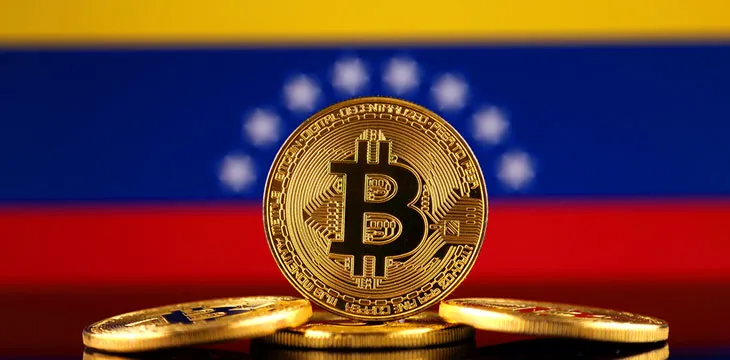|
Getting your Trinity Audio player ready...
|
An overhaul of Venezuela‘s National Superintendency of Crypto Assets places Anabel Pereira Fernández in charge and excludes former head Joselit Ramirez, who has reportedly been arrested on corruption charges.
Venezuelan President Nicolás Maduro has announced the reorganization of the country’s National Superintendency of Crypto Assets, known as Sunacrip, according to a March 17 decree.
The restructuring board will be helmed by Anabel Pereira Fernández, a lawyer who served as president of the Fondo de Garantía de Depositos y Protección Bancaria, the institute responsible for guaranteeing public deposits maintained in banks and financial institutions—an equivalent of the Federal Deposit Insurance Corporation (FDIC) in the United States.
Other notable changes include the appointments of Pavel Javier García Sandoval, Ramón Daniel Maniglia Darwich, Carlos Eloy Pirela Méndez, Larry Daniel Davoe Márquez, and Edgardo Alfonzo Toro Carreño as alternate directors, who replace Héctor Andrés Obregón Pérez, Luis Alberto Pérez González, and Julio César Mora Sánchez.
While there has been no official reasons given for the restructuring process, it is perhaps no coincidence that it comes on the same day Joselit Ramirez, who led the department since its inception in 2018, was arrested as part of an anti-corruption investigation on March 17.
Whilst not mentioning Ramirez’s arrest or any other specific reason for the shake-up, the reorganization decree does point to sanctions against the country as a motivating factor:
“It is the duty of the State to adopt all the measures at its disposal to protect the Venezuelan people from the negative effects of the multiform aggression that is taking place against the country and, especially, against its economy, through the imposition of unilateral coercive measures and others restrictive or punitive measures,” said President Maduro in the decree.
The new board will plan the next steps for the country’s digital assets department, Sunacrip, which is also the organization behind Petro, Venezuela’s digital currency supposedly backed by oil and mineral reserves.
Announced in December 2017 and launched the following year, the Petro was intended to supplement Venezuela’s spiraling Bolívar currency and help circumvent international sanctions, including a U.S. embargo on Venezuela’s state oil company, central bank, and government.
Despite Maduro continuing to push the Petro, uptake amongst citizens has been poor, with reports of Venezuelans exploring multiple avenues in an attempt to get rid of the digital currency tokens, something that will surely be on the agenda for the new board of Sunacrip.
Watch: Law & Order Regulatory Compliance for Blockchain & Digital Assets

 07-11-2025
07-11-2025 





